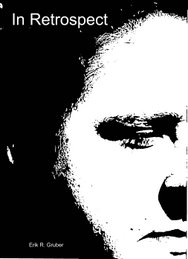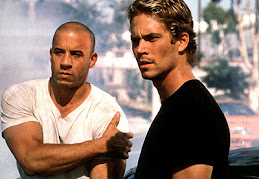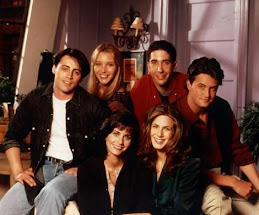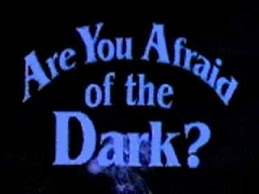NOTE: I'm posting a day early because those bastards over at Slate Magazine just put out a story on the same topic, and I want it to be known that they're ripping me off (I wrote this over the weekend). I'm not sure how they hacked in to my computer, but I'll get to the bottom of this. Enjoy!
The recent turmoil in Tibet has brought to the forefront, yet again, China’s abysmal record on human rights and its desperation to cover up said record. Following days of protest and civil unrest over Tibetan autonomy, the Chinese government hurriedly tidied up the messy affair, clearing streets of debris and downplaying reports that over 80 civilians had been killed by Chinese forces (their official report is 16). And to a large extent, their public relations efforts seem to be working (they’ve been removed from the United States’ top ten list for most egregious human rights violators).
This in itself is a sickening display of political pandering. It’s clear that America, and the international community as a whole, tip-toes around China for fear of awakening the beast. They have developed into an economic powerhouse with intimidating military might. From a sheer numbers standpoint, it seems essential that our governments remain on good terms, and for this reason we choose to ignore the repressive regime of Hu Jintao.
What’s more despicable is we are providing this government with our tacit approval by allowing them to host the 2008 summer Olympics. This international event is intended to serve as a display of global goodwill, connectedness, humanity and equality. By allowing China to host the games, and not uttering a word in protest, we have turned them into a PR farce made possible by China’s deeply disturbing habit of employing brutal tactics to silence dissent.
Jintao and his cronies can imprison every journalist, murder every protestor, and the fact remains that the Chinese government represses and/or exploits citizens in the name of progress, illegally detains vocal opponents and crushes potential uprisings with an iron fist. They fund tyrants, provide genocidal governments with advanced weaponry and implicit approval (most notably in Sudan) and are indignant of international pressure to change these practices, let alone intervene.
We have at our fingertips a unique opportunity to tighten the screws on the Chinese. Their international awareness is unprecedentedly sensitive, and it is crucial to this still developing country that the world takes them seriously. If we were to take the lead and even hint at an Olympic boycott, the global community would follow and force the Chinese to make their first ever good-hearted effort to improve their policies on human rights.
To start, they need to play hardball with Omar al-Bashir and the Sudanese government. If China pulled its economic support the Sudanese government would crumble. There would be no more supplies (military or otherwise) to be funneled to the government-supported Janjaweed militias. Al-Bashir knows this, and would fold at the suggestion. In addition, China should be required to send peacekeeping forces to drive the militias from Darfur. Next, China must free imprisoned dissidents and grant greater freedom to journalists. For a government to be legitimate, the people must have access to at least a rudimentary picture of its practices. Finally, China should allow the Dalai Lama to return from exile and should grant Tibet greater autonomy.
We have the power to make this happen with a simple phone call: “Good morning, President Jintao. Take human rights seriously, or we boycott.”
But, as usual, we’re far too short-sighted for such a proposition. For the boycott to work the threat must be real; we must be ready and willing to pull our athletes out of the games, to bar our television stations from airing any portion of them, to prevent any of our journalists from reporting results. But for economic reasons our threat to boycott would be a bluff, and if China called us on it the result would be disastrous.
So, as usual, we’re behind the game. A number of prominent figures have already either officially boycotted or hinted at boycotting the games. Steven Spielberg, originally slated to serve as art director for the opening ceremony, has backed out, saying that he could not in good conscience support the Chinese Olympics. France’s Foreign Minister Bernard Kouchner has urged the European Union to consider boycotting at least the opening ceremony (though in my opinion this would serve solely as a publicity stunt. We must be willing to boycott the games in their entirety). Several international groups reportedly have plans to protest at various sections of the torch lighting ceremony.
In the span of a lifetime, the opportunities to truly stand against injustice and to better the world for future generations are few and far between. This is one of them. And think, it would require no bloodshed, no armed conflict. All it would take would be a unified international voice shouting “we don’t approve of your oppressive government, and we won’t participate in the charade.” True passive resistance.
On the other hand, let’s review America’s record on human rights. We, too, fund governments that have horrifying habits of repressing citizens (Pakistan, Saudi Arabia) and genocidal madmen (Saddam Hussein in the ‘80s). We, too, illegally detain citizens (think Guantanamo), spy on citizens (the Patriot Act), and attempt to silence opponents (look at the Scooter Libby scandal).
We didn’t put up too much of a fuss when Nazi Germany hosted the summer Olympics in 1936, which makes me suspect that, despite all of our high-minded rhetoric and efforts to play the global moral authority, we just don’t give a shit.
So maybe an American protest would just be a grandiose display of our own hypocrisy.
You decide for yourself, but Zizzle-Zot,etc. officially boycotts.
Thanks for reading
Tuesday, March 25, 2008
Thursday, March 20, 2008
Oh The Madness!
Listen closely, ladies and gents, and one can already hear the cries of victory and defeat, celebration and heartbreak, heroes and inevitable zeroes. This is the season of competitions settled in waning seconds, legends made in defining moments, upsets, cinderellas, sleepers, programs built or destroyed, myths made reality, dreams shattered.
This is March Madness
I dedicate this post to the spirit of the greatest sporting event of the year. Let’s talk about who we love, who we hate. Which team will make a surprise run into the elite eight? Which team is primed to be picked off in the early rounds? And keep in mind that this is largely speculation, which is the beauty of March Madness. Any one of these teams can hit a hot streak and ride it all the way to the Final Four in San Antonio. Likewise, a powerhouse by conventional wisdom could find themselves with an injured star, or unable to deal with an unanticipated full court press, or unable to cope with a hostile crowd, and turn out to be the flop of the tourney. Nobody knows. I’m as much a March Madness authority as those talking heads on ESPN. We all are. Eat it, Dick Vitale.
East Regional
Zot’s Favorites: The East is North Carolina’s to win or lose. They stay in their home state until the final four, where they will be enthusiastically supported by most of the North Carolina student body. It’s tough to root against consensus Player of the Year Tyler Hansbrough. Not only is he significantly stronger and smarter than any defender he faces (not to mention surprisingly athletic. Did anyone else see him dunk on 7-foot-7 Kenny George of UNC-Asheville?), he has the biggest heart of any player in recent memory. Note that when star PG Ty Lawson injured his ankle and sat out seven games, Hansbrough played out of his mind and willed the Tar Heels to a 6-1 record (despite lacking a feasible PG option).
Other Goodies: Overall, the East Regional seems designed to clear the way for North Carolina to mosey into the Final Four (which is precisely why they’ll probably lose). The problem here is consistency. There are some teams that can be very good. Tennessee, if they’re hot, will dominate. But if they’re cold, they’ll have trouble winning (more on this later). For a good chunk of the season Indiana was a great team, but they’ve shown a tendency to choke on the big stage (and they lost to the Gophers in the Big 10 tourney). I like Notre Dame to get into the Sweet Sixteen. They can put up big numbers and I’ve seen some impressive wins from them this season, but they would need an otherworldly effort from Luke Harangody (a lot to ask considering he’ll most likely be covered by Hansbrough) to get past UNC.
Houston, We Have a Problem: Watch out for Tennessee. If they’re on, they could make a bracket or two. They can score like madmen, are surprisingly resourceful and scrappy (and have shown themselves to be capable of rising to the occasion when they beat then #1 Memphis), and if they’re shooting well…yikes (their offense is designed to shoot in the first seven seconds of the shot clock). On the other hand, they live and die with the 3-ball. Come tournament time, I hate teams that need to be shooting well from distance to win. Three of their starters are 6-2, and the tallest guy in their 7 or 8-man rotation is 6-9. What happens if they’re shooting poorly?
Sleeper: South Alabama gets to play their first two games close to home (Birmingham), have a couple of solid guards, and thrive in an up-tempo setting (which should help them against Tennessee in the second round). But will they be able to keep up with Tennessee’s star power?
Midwest regional
Zot’s Favorites: The Wisconsin Badgers play fundamental basketball, solid defense, and completely lack star power. I love them for it. They have the experience and scrappiness to keep any game close, will squeak past Georgetown when Hibbert inevitably finds himself in foul trouble, and do the same to Kansas when they inevitably self-destruct. They don’t rely on any one player to have a huge game to win, making them greater than the sum of their parts. They will have trouble if any of their opponents are able get out and run on them, as this lack of stardom means they may have trouble keeping up in a score-fest.
Other Goodies: Clemson looked strong in two games against the Tar Heels (one I watched in its entirety, the other I saw highlights) losing both in overtime. Buyer beware: their free throw shooting is a major liability.
Houston, We Have a Problem: I’ll grant that this isn’t really fare considering they aren’t necessarily a top seed, but USC has been getting a lot of hype in recent days, and I’d like to be the first to dispel any rumors that they might get past the second round. Big man Taj Gibson is their cornerstone and sole inside presence, but seems to find himself watching many games from the bench after early foul trouble. Freshman phenom OJ Mayo is almost as over-hyped as Indiana star Eric Gordon. Folks, when you shoot 5 for 23 from the field and 10 for 17 from the charity stripe, it wasn’t a good game. I don’t really care that you scored 20 points. It was a bad game.
Sleeper: I like Davidson. Sophomore guard Stephen Curry (son of former NBA player Dell Curry) is a bonafide star who can score at will. If he’s hot there’s no reason he can’t put up 50. Plus, they’ve won 22 straight games. That’s not easy.
South Regional
Zot’s Favorites: Memphis lost one game in the regular season to a very good Tennessee team that played very well. Joey Dorsey was in foul trouble early. Dozier had his head up his ass till late in the second half. Douglas-Roberts had an off game. Now everyone’s talking about Memphis like they’re a weak one seed. Bullspit. I’ll take the Memphis starting 5 over any other starting 5 in the game. Dorsey is a strong, mean and dominant enforcer on the inside, one capable of locking down any big man in the game (I’m looking at you, Kevin Love). Rose is an explosive and powerful PG that will either out-run or out-muscle the opposition. Douglas-Roberts is a pure scorer and underrated defender. Look at what this team did in the regular season. They didn’t just win a lot of games. They destroyed and embarrassed the competition. I’d be hard pressed to pick any other team to win the whole thing.
Other Goodies: I’ll never understand why Memphis and North Carolina, easily the top two teams during the season, have to deal with Texas and Tennessee as their number twos while Kansas gets an over-hyped, offensively incompetent Georgetown and UCLA (who must be in bed with the bracketologists) gets to face the prep school masquerading as Duke (more on them to come). Texas is a giant killer, having beaten both Kansas and UCLA, and Tennessee got screwed out of a one seed. Texas’ DJ Augustin is one of the top guards in the country and if they do face Memphis it will be in Houston. On the other hand, I believe Rose will absolutely lock Augustin down, and Texas loves the 3. We all know how I feel about that.
Houston, We Have a Problem: This is a great region for teams that have found their way into my doghouse. Oregon refuses to play defense and shouldn’t be in the tourney at all, let alone have a nine seed. I always bet against Pittsburgh, though I can’t explain why. I just don’t like them. Same rule applies for Michigan State, and this year’s squad is particularly schizophrenic. I watched a game where they scored 36 points. That’s bad.
Sleeper: I like both 13 seed Oral Roberts and 12 seed Temple. It helps that they’re matched up against my problem teams in the in the first round and could realistically pull off an upset, depending on which Pitt and Michigan St. teams show up to play. Temple has won seven straight, and Oral Roberts is an athletic bunch.
West Regional
Zot’s Favorites: As I’ve mentioned, UCLA must have the selection committee in its front pocket, because on paper their road to the Final Four couldn’t get much easier. Could it be that three out of four number one seeds make it to San Antonio?
Other Goodies: Xavier is an extremely well balanced team that loves shootouts. They match up favorably with most of the opposition, and their first real test won’t come until they face UCLA in the Elite Eight.
Houston, We Have a Problem: I hate hate hate this Duke team. They have no inside presence whatsoever, relying solely on the 3. I hope it’s clear by now how I feel about that. These are the types of people who would pull up outside the arc when they have a 3 on 1 fast break, a la Troy Hudson. Yes, they did beat North Carolina, but Lawson was out at the time and his replacement, Thomas, was still new to the job. They followed it up with a series of uninspiring losses to unranked teams. The fact that Duke is perpetually over ranked is the most blatant representation of committee bias.
Sleeper: Watch out for BYU and Purdue. BYU is athletic and can shoot. If they’re hot they’re dangerous. Purdue is young and inexperienced, but has beaten some big time schools (swept Wisconsin, beat Louiseville).
Several of the people reading this blog are participating in a pool on Yahoo sports. If you look closely, you’ll notice that my picks here don’t always line up with the picks I actually made in my bracket.
Explanation: This is a guessing game. Some knowledge of college basketball may be helpful, but more often than not the winner of a pool will be a computer programmer who spends his free time playing World of Warcraft. I’m in a couple of different pools, and in case I’m completely off base, I’ve gone to great lengths to make my brackets as varied as possible.
Let the games begin.
Thanks for reading.
This is March Madness
I dedicate this post to the spirit of the greatest sporting event of the year. Let’s talk about who we love, who we hate. Which team will make a surprise run into the elite eight? Which team is primed to be picked off in the early rounds? And keep in mind that this is largely speculation, which is the beauty of March Madness. Any one of these teams can hit a hot streak and ride it all the way to the Final Four in San Antonio. Likewise, a powerhouse by conventional wisdom could find themselves with an injured star, or unable to deal with an unanticipated full court press, or unable to cope with a hostile crowd, and turn out to be the flop of the tourney. Nobody knows. I’m as much a March Madness authority as those talking heads on ESPN. We all are. Eat it, Dick Vitale.
East Regional
Zot’s Favorites: The East is North Carolina’s to win or lose. They stay in their home state until the final four, where they will be enthusiastically supported by most of the North Carolina student body. It’s tough to root against consensus Player of the Year Tyler Hansbrough. Not only is he significantly stronger and smarter than any defender he faces (not to mention surprisingly athletic. Did anyone else see him dunk on 7-foot-7 Kenny George of UNC-Asheville?), he has the biggest heart of any player in recent memory. Note that when star PG Ty Lawson injured his ankle and sat out seven games, Hansbrough played out of his mind and willed the Tar Heels to a 6-1 record (despite lacking a feasible PG option).
Other Goodies: Overall, the East Regional seems designed to clear the way for North Carolina to mosey into the Final Four (which is precisely why they’ll probably lose). The problem here is consistency. There are some teams that can be very good. Tennessee, if they’re hot, will dominate. But if they’re cold, they’ll have trouble winning (more on this later). For a good chunk of the season Indiana was a great team, but they’ve shown a tendency to choke on the big stage (and they lost to the Gophers in the Big 10 tourney). I like Notre Dame to get into the Sweet Sixteen. They can put up big numbers and I’ve seen some impressive wins from them this season, but they would need an otherworldly effort from Luke Harangody (a lot to ask considering he’ll most likely be covered by Hansbrough) to get past UNC.
Houston, We Have a Problem: Watch out for Tennessee. If they’re on, they could make a bracket or two. They can score like madmen, are surprisingly resourceful and scrappy (and have shown themselves to be capable of rising to the occasion when they beat then #1 Memphis), and if they’re shooting well…yikes (their offense is designed to shoot in the first seven seconds of the shot clock). On the other hand, they live and die with the 3-ball. Come tournament time, I hate teams that need to be shooting well from distance to win. Three of their starters are 6-2, and the tallest guy in their 7 or 8-man rotation is 6-9. What happens if they’re shooting poorly?
Sleeper: South Alabama gets to play their first two games close to home (Birmingham), have a couple of solid guards, and thrive in an up-tempo setting (which should help them against Tennessee in the second round). But will they be able to keep up with Tennessee’s star power?
Midwest regional
Zot’s Favorites: The Wisconsin Badgers play fundamental basketball, solid defense, and completely lack star power. I love them for it. They have the experience and scrappiness to keep any game close, will squeak past Georgetown when Hibbert inevitably finds himself in foul trouble, and do the same to Kansas when they inevitably self-destruct. They don’t rely on any one player to have a huge game to win, making them greater than the sum of their parts. They will have trouble if any of their opponents are able get out and run on them, as this lack of stardom means they may have trouble keeping up in a score-fest.
Other Goodies: Clemson looked strong in two games against the Tar Heels (one I watched in its entirety, the other I saw highlights) losing both in overtime. Buyer beware: their free throw shooting is a major liability.
Houston, We Have a Problem: I’ll grant that this isn’t really fare considering they aren’t necessarily a top seed, but USC has been getting a lot of hype in recent days, and I’d like to be the first to dispel any rumors that they might get past the second round. Big man Taj Gibson is their cornerstone and sole inside presence, but seems to find himself watching many games from the bench after early foul trouble. Freshman phenom OJ Mayo is almost as over-hyped as Indiana star Eric Gordon. Folks, when you shoot 5 for 23 from the field and 10 for 17 from the charity stripe, it wasn’t a good game. I don’t really care that you scored 20 points. It was a bad game.
Sleeper: I like Davidson. Sophomore guard Stephen Curry (son of former NBA player Dell Curry) is a bonafide star who can score at will. If he’s hot there’s no reason he can’t put up 50. Plus, they’ve won 22 straight games. That’s not easy.
South Regional
Zot’s Favorites: Memphis lost one game in the regular season to a very good Tennessee team that played very well. Joey Dorsey was in foul trouble early. Dozier had his head up his ass till late in the second half. Douglas-Roberts had an off game. Now everyone’s talking about Memphis like they’re a weak one seed. Bullspit. I’ll take the Memphis starting 5 over any other starting 5 in the game. Dorsey is a strong, mean and dominant enforcer on the inside, one capable of locking down any big man in the game (I’m looking at you, Kevin Love). Rose is an explosive and powerful PG that will either out-run or out-muscle the opposition. Douglas-Roberts is a pure scorer and underrated defender. Look at what this team did in the regular season. They didn’t just win a lot of games. They destroyed and embarrassed the competition. I’d be hard pressed to pick any other team to win the whole thing.
Other Goodies: I’ll never understand why Memphis and North Carolina, easily the top two teams during the season, have to deal with Texas and Tennessee as their number twos while Kansas gets an over-hyped, offensively incompetent Georgetown and UCLA (who must be in bed with the bracketologists) gets to face the prep school masquerading as Duke (more on them to come). Texas is a giant killer, having beaten both Kansas and UCLA, and Tennessee got screwed out of a one seed. Texas’ DJ Augustin is one of the top guards in the country and if they do face Memphis it will be in Houston. On the other hand, I believe Rose will absolutely lock Augustin down, and Texas loves the 3. We all know how I feel about that.
Houston, We Have a Problem: This is a great region for teams that have found their way into my doghouse. Oregon refuses to play defense and shouldn’t be in the tourney at all, let alone have a nine seed. I always bet against Pittsburgh, though I can’t explain why. I just don’t like them. Same rule applies for Michigan State, and this year’s squad is particularly schizophrenic. I watched a game where they scored 36 points. That’s bad.
Sleeper: I like both 13 seed Oral Roberts and 12 seed Temple. It helps that they’re matched up against my problem teams in the in the first round and could realistically pull off an upset, depending on which Pitt and Michigan St. teams show up to play. Temple has won seven straight, and Oral Roberts is an athletic bunch.
West Regional
Zot’s Favorites: As I’ve mentioned, UCLA must have the selection committee in its front pocket, because on paper their road to the Final Four couldn’t get much easier. Could it be that three out of four number one seeds make it to San Antonio?
Other Goodies: Xavier is an extremely well balanced team that loves shootouts. They match up favorably with most of the opposition, and their first real test won’t come until they face UCLA in the Elite Eight.
Houston, We Have a Problem: I hate hate hate this Duke team. They have no inside presence whatsoever, relying solely on the 3. I hope it’s clear by now how I feel about that. These are the types of people who would pull up outside the arc when they have a 3 on 1 fast break, a la Troy Hudson. Yes, they did beat North Carolina, but Lawson was out at the time and his replacement, Thomas, was still new to the job. They followed it up with a series of uninspiring losses to unranked teams. The fact that Duke is perpetually over ranked is the most blatant representation of committee bias.
Sleeper: Watch out for BYU and Purdue. BYU is athletic and can shoot. If they’re hot they’re dangerous. Purdue is young and inexperienced, but has beaten some big time schools (swept Wisconsin, beat Louiseville).
Several of the people reading this blog are participating in a pool on Yahoo sports. If you look closely, you’ll notice that my picks here don’t always line up with the picks I actually made in my bracket.
Explanation: This is a guessing game. Some knowledge of college basketball may be helpful, but more often than not the winner of a pool will be a computer programmer who spends his free time playing World of Warcraft. I’m in a couple of different pools, and in case I’m completely off base, I’ve gone to great lengths to make my brackets as varied as possible.
Let the games begin.
Thanks for reading.
Wednesday, March 19, 2008
Patience, Young Padawans
My apologies, but you’ll have to wait until tomorrow for this week’s post. I’ve done a breakdown of March Madness, and realized after finishing that if I were to post what I’d written, I’d be giving you noobs the answer key to this year’s bracket. Not gonna happen. Brackets are due tomorrow morning, and that’s when I’ll reveal the winners.
On a couple of side notes:
If you’ve been watching economic news, it looks like the Federal Reserve might self destruct, saving me a lot of time and effort. If their bailout for financial institutions backfires (ie fails to restore investor confidence) and markets continue to crumble, they will find themselves increasingly owned by foreign interests and their international reputation will erode to the point of no return. Since our financial systems are largely based on speculation (which is based on some inexplicable concoction of arrogance, inevitability and blind faith), a loss of trust means the downfall of the Federal Reserve.
I’m not an economist, nothing in the world is less interesting to me than money (well… maybe technical writing) and numbers give me a headache, so if the Fed were to go up in a cash fed blaze of its own making, sparked by the ember of imagined invincibility, I would be the first to rejoice.
K-Han, I caught Obama’s speech this morning. Brilliant. This is what he does best, and he once again demonstrated his understanding of complex issues with intelligence and empathy.
You’ll hear from me again tomorrow. Good luck on those brackets!
Thanks for reading.
On a couple of side notes:
If you’ve been watching economic news, it looks like the Federal Reserve might self destruct, saving me a lot of time and effort. If their bailout for financial institutions backfires (ie fails to restore investor confidence) and markets continue to crumble, they will find themselves increasingly owned by foreign interests and their international reputation will erode to the point of no return. Since our financial systems are largely based on speculation (which is based on some inexplicable concoction of arrogance, inevitability and blind faith), a loss of trust means the downfall of the Federal Reserve.
I’m not an economist, nothing in the world is less interesting to me than money (well… maybe technical writing) and numbers give me a headache, so if the Fed were to go up in a cash fed blaze of its own making, sparked by the ember of imagined invincibility, I would be the first to rejoice.
K-Han, I caught Obama’s speech this morning. Brilliant. This is what he does best, and he once again demonstrated his understanding of complex issues with intelligence and empathy.
You’ll hear from me again tomorrow. Good luck on those brackets!
Thanks for reading.
Wednesday, March 12, 2008
New York City Mayor Announces Plan to Control Rat Population: Will Introduce Larger Species of Rat

Following a series of embarrassing PR fiascos, most notably a video released on YouTube showing an urban Taco Bell crawling with the diseased rodents, New York City mayor Michael Bloomberg admitted at a press conference Tuesday afternoon that the unfettered growth of the city’s already teeming rat population has become a source of concern amongst government health officials, food service employees, and average citizens who just hate rats. Mayor Bloomberg also announced that a task force has been at work for nearly 9 months to devise an action plan aimed at radically decreasing the infestation.
“We’re very excited about the plan our task force has presented,” declared the typically smug Bloomberg. “We’ve assembled an extremely capable team of biologists, ecologists, environmental experts, sociologists, exterminators, and several stray alley cats. The very best New York City has to offer. What they’ve given us is an efficient, effective and economical guide to forever rid New York City of its rats.”
The plan? City officials will reportedly import a larger, much more aggressive species of rat to deplete the food supply. A typical New York City rat is from the rattus norvegicus family (commonly know as the “brown rat” or “Norwegian rat”). The task force aims to introduce the rattus cavus magnificus (also known as the “great cave rat”), a rare subspecies traditionally isolated to the Indonesian Islands and parts of China.
If all goes as foreseen, these new inhabitant will first consume all accessible food at restaurants, city parks and garbage dumps. At this point they will turn on New York’s native brown rats, devouring the entire population in a violent, bloody massacre.
Reportedly, this species has been known to consume household pets and even small children as development has crept upon its natural habitat, but Mayor Bloomberg is undaunted by such prospects. Reassuring citizens, Bloomberg stated “Yes, cave rats are known to be extremely volatile and aggressive, and there are rumors that they have eaten a baby or two in Indonesia (government records indicate that 11 babies were eaten by cave rats in 2007), and yes, the people of China refer to them as ‘demon rats’ and are instructed to kill them on sight by whatever means necessary, but I assure you folks, there’s nothing to worry about. A cave rat infestation large enough to result in the consumption of children or household pets is five, even ten years off.”

The team of experts then presented a cage containing both a great cave rat and a typical New York rat to demonstrate the brown rat killing prowess of the cave rat species. As expected, the cave rat immediately pounced upon and devoured the smaller brown rat in a whirlwind of blood and innards, at which point it pried open the bars of its cage and mauled its handler, two reporters and an armed security guard before escaping into the busy Manhattan streets.
Thanks for reading.
PS. I haven’t forgotten about the Federal Reserve, but first I’m going to do my research. Expect a post in the future. We will bring them down.
Friday, March 7, 2008
Victor Bout Arrested
To keep you all updated on former Zizzle-Zot People of Note, Russian arms dealer Victor Bout (http://erikgruber.blogspot.com/2007/09/people-of-note-victor-bout.html) has been arrested in Thailand as a result of an American led sting operation.
http://www.nytimes.com/2008/03/07/world/europe/07dealer.html?th&emc=th
http://www.nytimes.com/2008/03/07/world/europe/07dealer.html?th&emc=th
Wednesday, March 5, 2008
Scary Movie 5: Can I Panic Yet?
P Corcs, thanks for bringing that delightful video and all its paranoia inspiring, New World Order preaching, speculatively reasonable conspiracy theories to our attention. Conversation was inevitable, and that’s exactly what we here at Zizzle-Zot, etc. thrive on.
I’ve seen some of these theories in the past (the North American Union, implanted ID chips) and some are new to me (the involvement of the Rockefellers).
Some I agree with, particularly the opening segment concerning the educational system. Government regulated education, most notably questionable legislation such as No Child Left Behind, has served the sole purpose of making us stupid. By forcing educators to neglect the passage of actual knowledge because the emphasis is placed on preparation for standardized tests aimed at the lowest denominator, the government has repressed the maturation of bright young minds and subverted the ability of teachers to do what they do; that is, teach.
Some of the theories are absurd. A North American Union will never happen. We’re much too proud, much too nationalistic, and quite frankly, much too powerful to ever align ourselves with Canada and Mexico. The European Union was formed because it was mutually beneficial for the countries involved. It took a number of small, relatively insignificant countries and bound them into an economic powerhouse. What would the US have to gain by partnering with Canada and Mexico (aside from access to a few natural resources)? Mexico would quickly become a financial burden, Canada, I imagine, would continue to operate as it does now (autonomously, but by following our lead). There’s simply no incentive.
And some of the theories exist in shades of grey. These are the theories that hold the most interest.
Late Night, you seem awfully convinced that we are too “smart” to hand the government our liberties. But are we really?
One of the primary DFL issues in the upcoming election is universal health care. I’ll admit that I’m an advocate. But what does this legislation really do but strip us of small freedoms: the freedom to choose what doctor we see, what hospital we visit?
After 9/11 there was overwhelming public support for the Patriot Act (you were anti-American if you opposed it – but don’t look at me, I screamed foul all along: http://erikgruber.blogspot.com/2007/08/shhhtheyre-listening.html). This legislation gave the government the right to spy on Americans without a warrant, amongst other things. Again, we willingly gave up our freedoms.
Every year the government takes a large chunk of the money that we earn, and ultimately we have no say about where that money goes. I don’t want my tax money supporting war, but the powers that be don’t care. They take that money out of my paycheck, depriving me of the liberty to choose where I spend the money I worked for.
We willingly give up our liberties on a daily basis.
The government controls fiscal policy, ranging from interest rates to (I suspect) the price of gasoline. We’re prisoners of fear, and on a practical level our greatest fears are economic.
Think about this: we are prisoners of debt.
What are the real necessities of life? Food, water, shelter. Let’s focus on that last one: shelter. How do we provide shelter for ourselves, or more importantly, for our families? There are two options: we can rent, but if we don’t own our shelter we don’t own our lives, or ourselves. We are at the whim of landlords, developers, and the government. We could be thrown on the street at a moment’s notice and have nothing to show for it. It’s essential that we own our shelter, so we buy, and by doing so we go into debt.
How will we pay off that debt? We need a job, but in order to get that job we need education. More debt. Now we have the job, how will we get there? We need transportation. More debt. It goes on in this manner to infinity.
Living this way, constantly struggling to catch up to our debts, constrains our world view. We can’t see beyond “I need to work to pay off my debt or I won’t be able to buy the next thing I need.” We sacrifice our connection to reality and life at the entirely theoretical altar of money.
And who controls the money that we have sacrificed our liberty to? That’s right, the government.
Let’s not delude ourselves into thinking that we have ownership of our lives. As long as we’re buried beneath debt we are simply on loan. We’re owned by the banks, which are ultimately owned by the government. We already have chips, but instead of being implanted they come in the form of credit cards, bank statements and bills. Don’t be overly confident that the government can’t already turn your “chips” off as they see fit. They have the authority to freeze your assets. Are the two not synonymous? By giving our consent to taxation (over which we have no control) and our participation in the American economic system, we have willingly and readily given up our liberty.
Now think about this: we are blind participants in perpetual warfare. Following WWII we established Israel; superficially to allow the Jews to return to their homeland and to right the injustices that had been inflicted upon them, but secretly to place a proxy army in the heart of an extremely important economic zone. Surely we must have known that displacing millions of Arabs and allowing Jews to move in would inevitably lead to bloody conflict and was, lawfully speaking, dubious at best. But we also knew that by creating and funding a powerful army in this region we could propagate division and chaos, allowing us to maintain an iron grip through our own wealth and military might.
I’ve written at length on this topic in my “A (Very) Brief History of the Middle East” series, but to revisit: what was our reasoning when we invaded Iraq? The country was not a terrorist hotbed until we got there. Compared to some Middle Eastern nations they were relatively stable (see Afghanistan, Pakistan). Yes, Saddam Hussein had committed crimes against humanity, but so have Kim Jong Il, Omar al-Bashir of Sudan, and countless other leaders throughout history that the US hasn’t hastened to remove.
I won’t take it so far as some and suggest outright that 9/11 was a conspiracy. But I will suggest that our motivations in the Middle East are more insidious than we would like to imagine. And who is it that funds these conflicts? That’s right, we do. MLK once said “He who passively accepts evil is as much involved in it as he who helps to perpetrate it. He who accepts evil without protesting against it is really cooperating with it.” By helping to fund war, I am consenting to war, and am being made an unwilling participant in war.
Liberty my ass.
Well my friends, we’ve been many places together, and for today at least we’re firmly entrenched in the fringes of society. If later tonight you’re on the phone and you hear an extra click, be very careful. They’re listening.
Thanks for reading.
PS I didn’t get a chance to watch the extended videos you linked to, PCorcs, but have every intention of doing so today. I’m sure they will spark more discussion.
I’ve seen some of these theories in the past (the North American Union, implanted ID chips) and some are new to me (the involvement of the Rockefellers).
Some I agree with, particularly the opening segment concerning the educational system. Government regulated education, most notably questionable legislation such as No Child Left Behind, has served the sole purpose of making us stupid. By forcing educators to neglect the passage of actual knowledge because the emphasis is placed on preparation for standardized tests aimed at the lowest denominator, the government has repressed the maturation of bright young minds and subverted the ability of teachers to do what they do; that is, teach.
Some of the theories are absurd. A North American Union will never happen. We’re much too proud, much too nationalistic, and quite frankly, much too powerful to ever align ourselves with Canada and Mexico. The European Union was formed because it was mutually beneficial for the countries involved. It took a number of small, relatively insignificant countries and bound them into an economic powerhouse. What would the US have to gain by partnering with Canada and Mexico (aside from access to a few natural resources)? Mexico would quickly become a financial burden, Canada, I imagine, would continue to operate as it does now (autonomously, but by following our lead). There’s simply no incentive.
And some of the theories exist in shades of grey. These are the theories that hold the most interest.
Late Night, you seem awfully convinced that we are too “smart” to hand the government our liberties. But are we really?
One of the primary DFL issues in the upcoming election is universal health care. I’ll admit that I’m an advocate. But what does this legislation really do but strip us of small freedoms: the freedom to choose what doctor we see, what hospital we visit?
After 9/11 there was overwhelming public support for the Patriot Act (you were anti-American if you opposed it – but don’t look at me, I screamed foul all along: http://erikgruber.blogspot.com/2007/08/shhhtheyre-listening.html). This legislation gave the government the right to spy on Americans without a warrant, amongst other things. Again, we willingly gave up our freedoms.
Every year the government takes a large chunk of the money that we earn, and ultimately we have no say about where that money goes. I don’t want my tax money supporting war, but the powers that be don’t care. They take that money out of my paycheck, depriving me of the liberty to choose where I spend the money I worked for.
We willingly give up our liberties on a daily basis.
The government controls fiscal policy, ranging from interest rates to (I suspect) the price of gasoline. We’re prisoners of fear, and on a practical level our greatest fears are economic.
Think about this: we are prisoners of debt.
What are the real necessities of life? Food, water, shelter. Let’s focus on that last one: shelter. How do we provide shelter for ourselves, or more importantly, for our families? There are two options: we can rent, but if we don’t own our shelter we don’t own our lives, or ourselves. We are at the whim of landlords, developers, and the government. We could be thrown on the street at a moment’s notice and have nothing to show for it. It’s essential that we own our shelter, so we buy, and by doing so we go into debt.
How will we pay off that debt? We need a job, but in order to get that job we need education. More debt. Now we have the job, how will we get there? We need transportation. More debt. It goes on in this manner to infinity.
Living this way, constantly struggling to catch up to our debts, constrains our world view. We can’t see beyond “I need to work to pay off my debt or I won’t be able to buy the next thing I need.” We sacrifice our connection to reality and life at the entirely theoretical altar of money.
And who controls the money that we have sacrificed our liberty to? That’s right, the government.
Let’s not delude ourselves into thinking that we have ownership of our lives. As long as we’re buried beneath debt we are simply on loan. We’re owned by the banks, which are ultimately owned by the government. We already have chips, but instead of being implanted they come in the form of credit cards, bank statements and bills. Don’t be overly confident that the government can’t already turn your “chips” off as they see fit. They have the authority to freeze your assets. Are the two not synonymous? By giving our consent to taxation (over which we have no control) and our participation in the American economic system, we have willingly and readily given up our liberty.
Now think about this: we are blind participants in perpetual warfare. Following WWII we established Israel; superficially to allow the Jews to return to their homeland and to right the injustices that had been inflicted upon them, but secretly to place a proxy army in the heart of an extremely important economic zone. Surely we must have known that displacing millions of Arabs and allowing Jews to move in would inevitably lead to bloody conflict and was, lawfully speaking, dubious at best. But we also knew that by creating and funding a powerful army in this region we could propagate division and chaos, allowing us to maintain an iron grip through our own wealth and military might.
I’ve written at length on this topic in my “A (Very) Brief History of the Middle East” series, but to revisit: what was our reasoning when we invaded Iraq? The country was not a terrorist hotbed until we got there. Compared to some Middle Eastern nations they were relatively stable (see Afghanistan, Pakistan). Yes, Saddam Hussein had committed crimes against humanity, but so have Kim Jong Il, Omar al-Bashir of Sudan, and countless other leaders throughout history that the US hasn’t hastened to remove.
I won’t take it so far as some and suggest outright that 9/11 was a conspiracy. But I will suggest that our motivations in the Middle East are more insidious than we would like to imagine. And who is it that funds these conflicts? That’s right, we do. MLK once said “He who passively accepts evil is as much involved in it as he who helps to perpetrate it. He who accepts evil without protesting against it is really cooperating with it.” By helping to fund war, I am consenting to war, and am being made an unwilling participant in war.
Liberty my ass.
Well my friends, we’ve been many places together, and for today at least we’re firmly entrenched in the fringes of society. If later tonight you’re on the phone and you hear an extra click, be very careful. They’re listening.
Thanks for reading.
PS I didn’t get a chance to watch the extended videos you linked to, PCorcs, but have every intention of doing so today. I’m sure they will spark more discussion.
Subscribe to:
Posts (Atom)

















